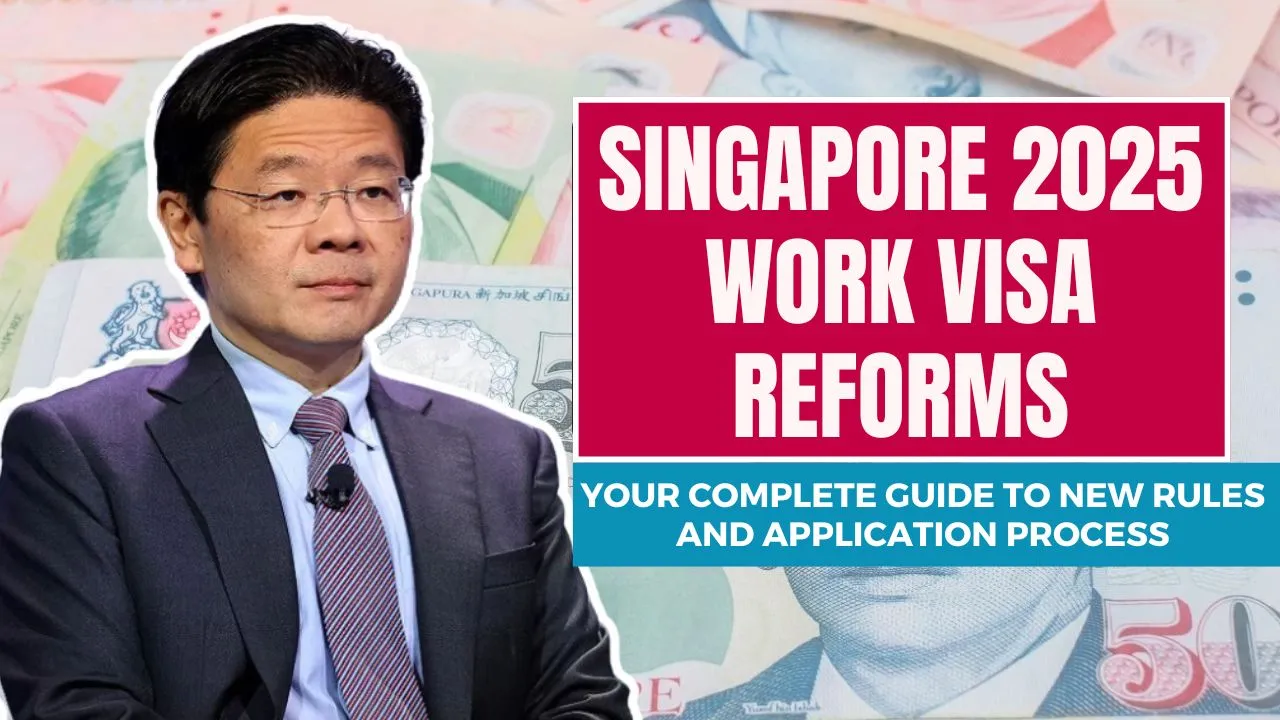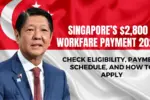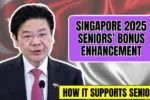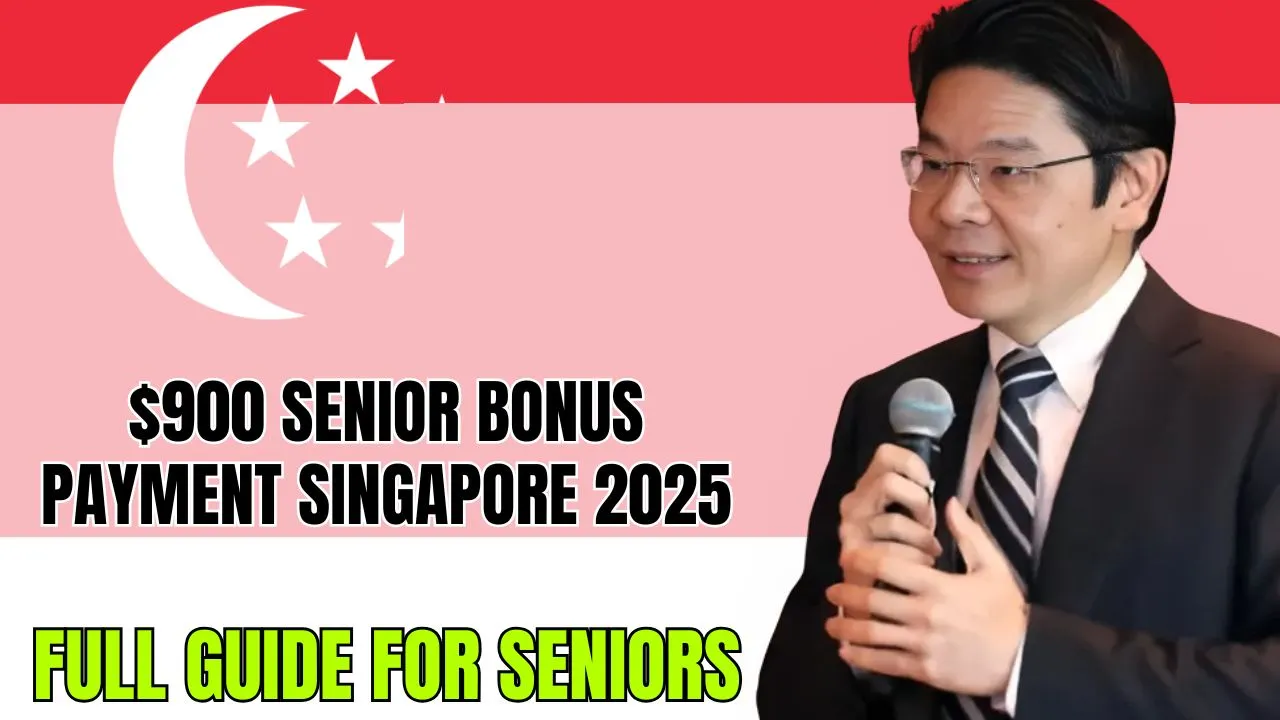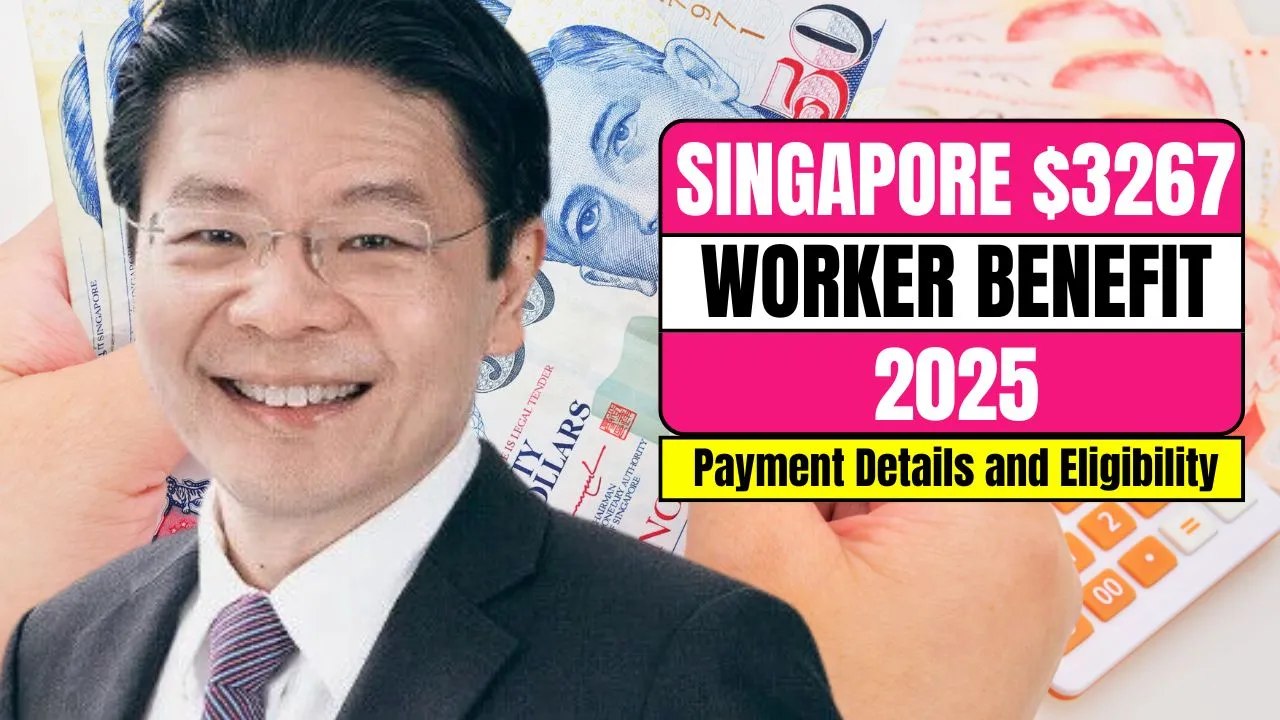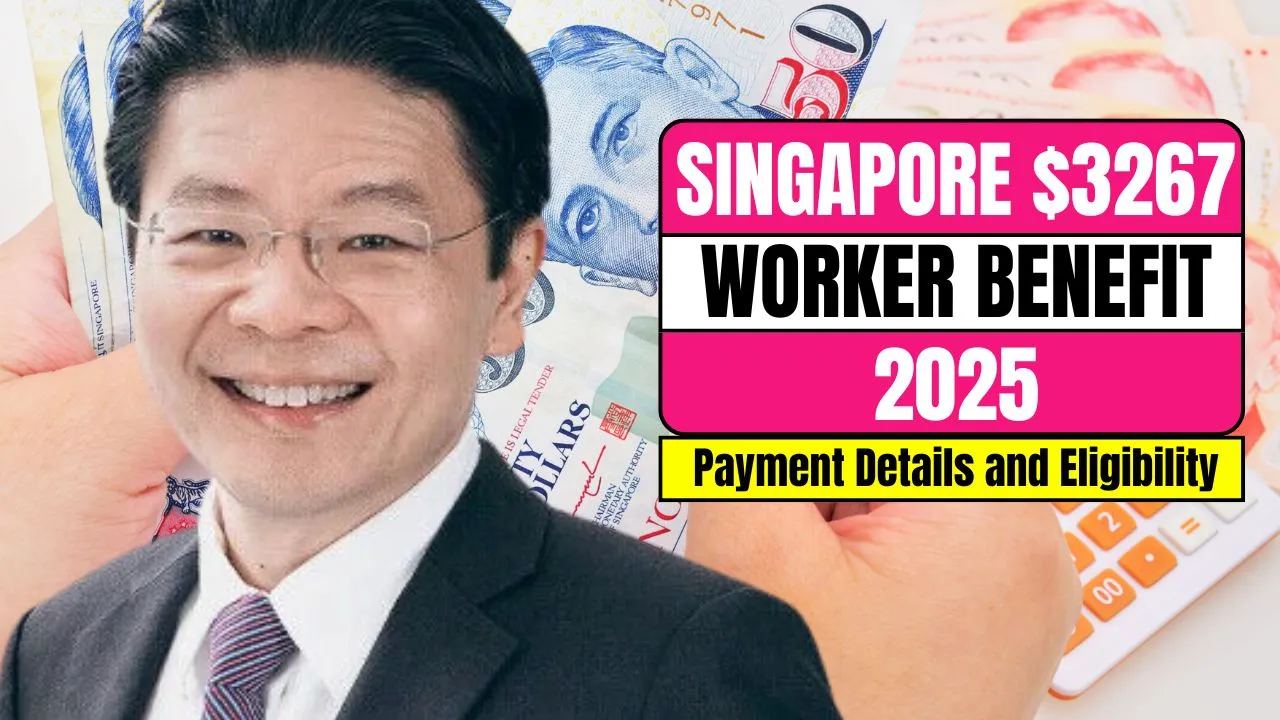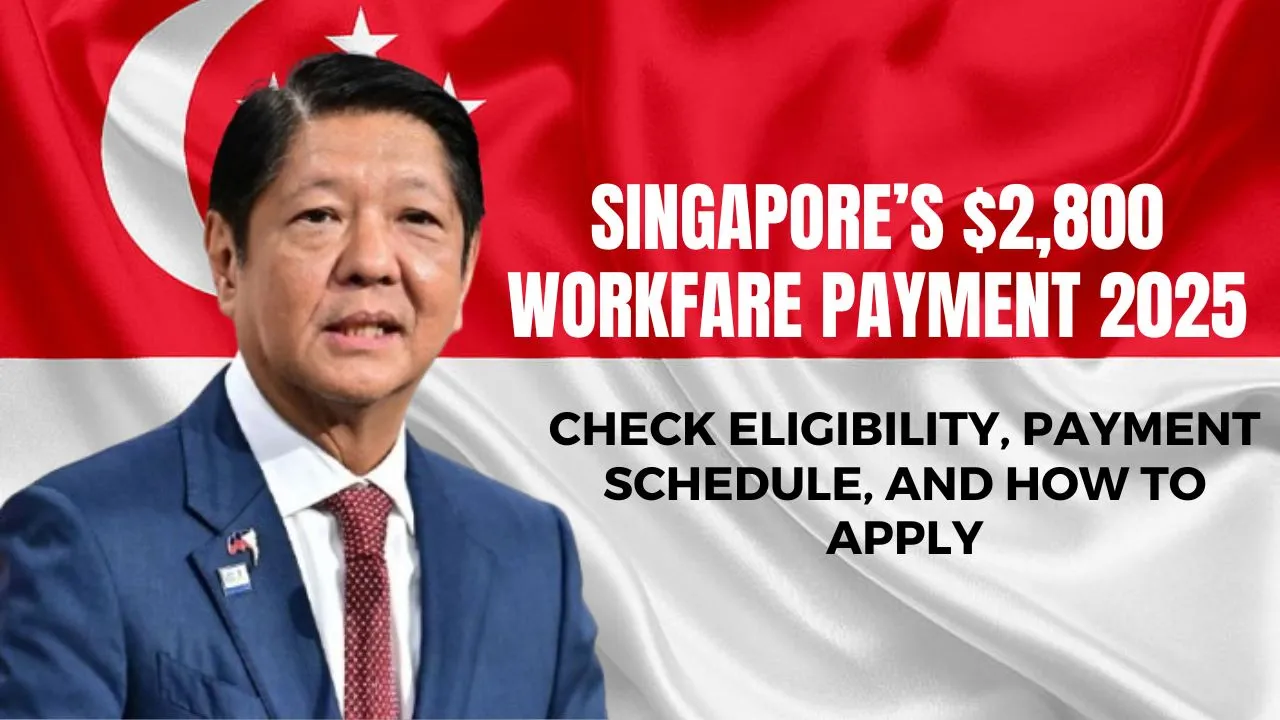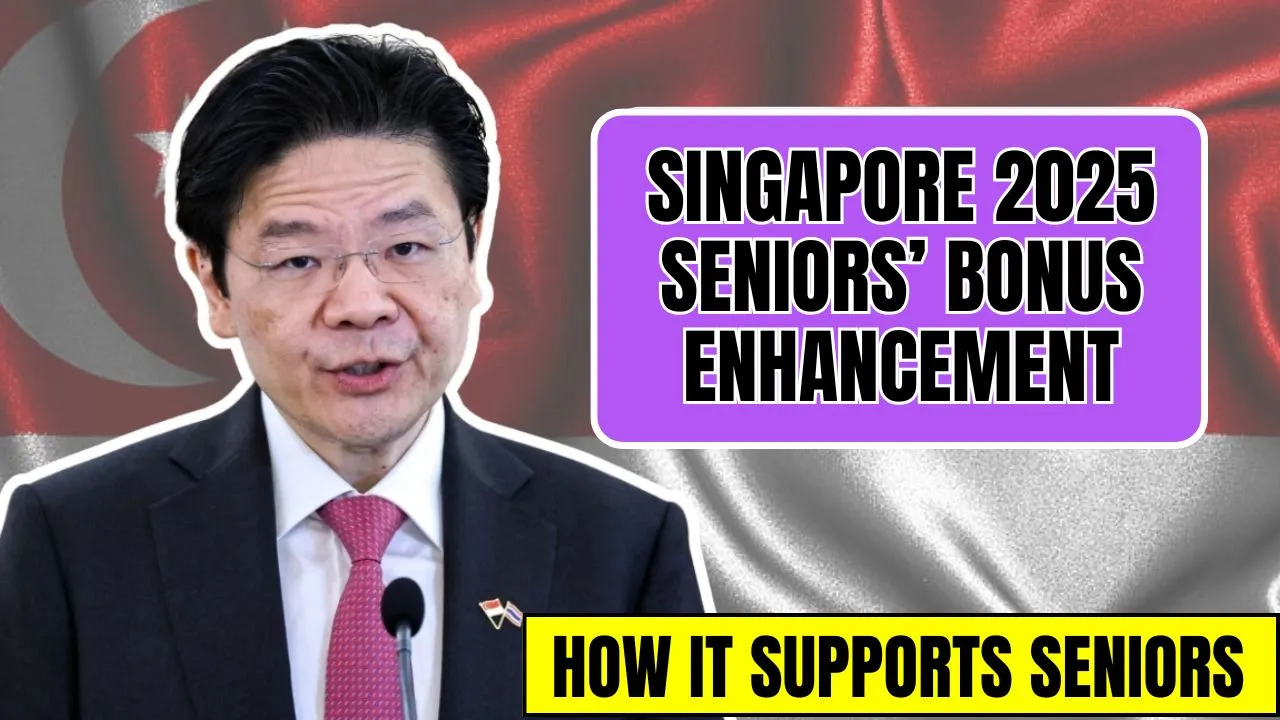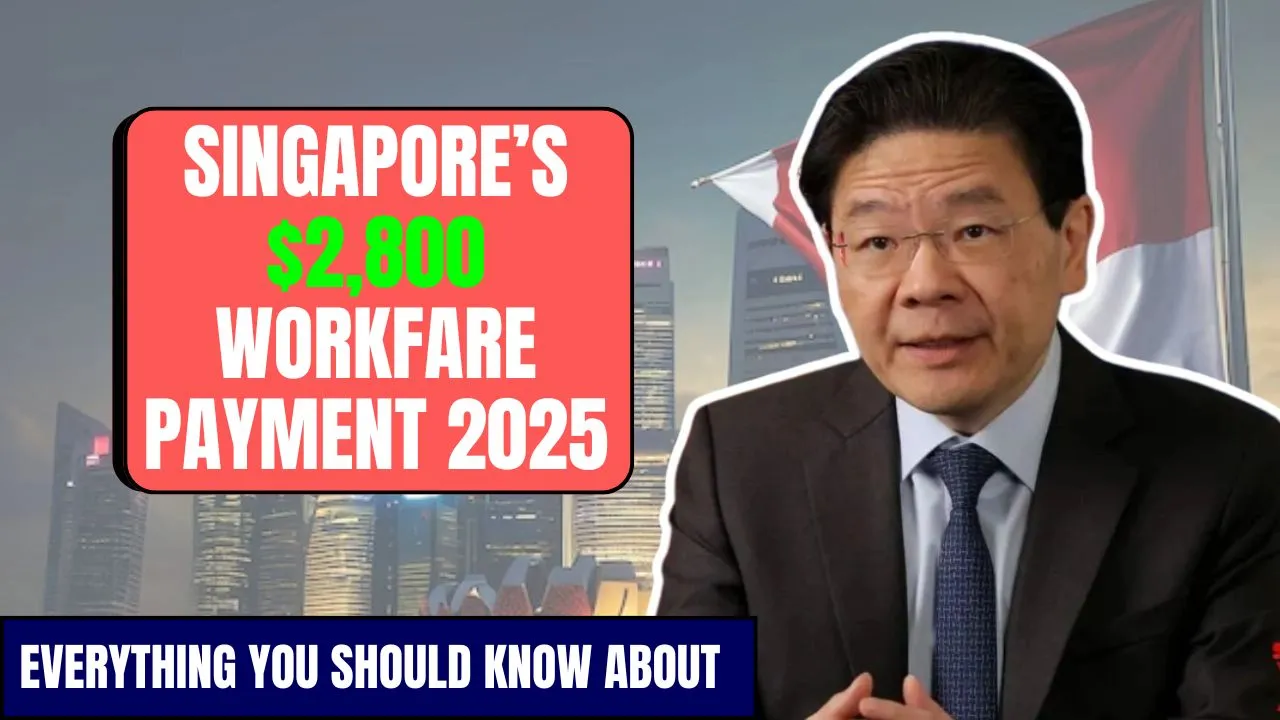Singapore 2025 Work Visa Reforms: Singapore has long been regarded as a magnet for skilled professionals, entrepreneurs, and workers from across the world. Its dynamic economy, pro-business environment, and strategic location make it a top choice for people seeking career growth in Asia. To further strengthen its position and adapt to changing global workforce trends, Singapore has introduced significant updates to its work visa policies in 2025.
These new reforms simplify application processes, raise eligibility standards, and open doors to emerging sectors. For anyone considering working in Singapore, understanding these latest changes is crucial to ensure a smooth visa journey. This guide walks you through everything you need to know about the Singapore 2025 Work Visa Reforms—from key policy changes to practical steps in applying for the right visa.
Singapore 2025 Work Visa Reforms Overview
The Singapore 2025 Work Visa Reforms focus on creating a more efficient, transparent, and future-ready employment system. The government’s objective is clear: attract high-caliber talent, meet the demands of fast-growing industries, and maintain Singapore’s competitive edge. Among the main highlights of the reforms are the relaxation of certain employment duration limits, updated salary benchmarks, and broader eligibility criteria to include professionals in cutting-edge fields like artificial intelligence and green technology.
Here’s a quick overview of the most important updates:
| Key Area | Details |
| Visa Categories Affected | Employment Pass (EP), S Pass, Work Permit, EntrePass, Personalised Employment Pass (PEP) |
| Notable Policy Changes | No limit on employment period for Work Permit holders |
| Upper age limits for foreign workers revised | |
| EP minimum salary raised to S$5,600 (S$6,200 in financial services sector) | |
| Broadened list of eligible occupations | |
| COMPASS framework mandatory for EP applicants | |
| Processing Timelines | EP & S Pass: ~3 weeks, Work Permit: ~1 week, EntrePass & PEP: ~8 weeks |
| Effective Dates | July 2024 (Work Permit change), January 2025 (salary benchmarks updated) |
| Primary Goals | Attract skilled talent, adapt to new industries, support long-term workforce growth |
Understanding Singapore’s Work Visa Options
Singapore offers multiple work visa types tailored to different professional levels and industries:
- Employment Pass (EP): Designed for foreign professionals, managers, and executives who meet specific income and qualification thresholds.
- S Pass: Suitable for mid-level skilled workers who also meet defined salary and qualification requirements.
- Work Permit: Primarily for semi-skilled or unskilled workers in sectors like construction, manufacturing, and services.
- EntrePass: Targeted at entrepreneurs and startup founders who wish to set up businesses in Singapore.
- Personalised Employment Pass (PEP): Meant for highly skilled professionals earning a substantial salary, offering flexibility not tied to one employer.
Each visa type has distinct criteria and processing steps, and the reforms have brought notable updates across all categories.
Major Policy Changes in the 2025 Reforms
Several key shifts define the Singapore 2025 Work Visa Reforms:
No More Maximum Employment Period for Work Permit Holders:
Previously, foreign workers holding Work Permits had limited employment periods. This restriction has now been lifted, meaning eligible workers can stay and work indefinitely, as long as they meet employer and regulatory standards.
Revised Age Limits for Foreign Workers:
Recognizing the value experienced professionals bring, Singapore has eased the upper age limits for foreign workers, giving them an extended window to contribute to the workforce.
Higher Salary Thresholds for Employment Pass:
To stay competitive globally, the minimum monthly salary for EP applicants has increased from S$5,000 to S$5,600 starting January 2025. Financial services professionals face a higher threshold of S$6,200, reflecting the sector’s specialized skills demand.
Expanded List of Eligible Occupations:
The government has broadened its list to include occupations in fast-evolving industries such as artificial intelligence, sustainable energy, and advanced technologies. This ensures that Singapore’s workforce is future-ready.
Mandatory COMPASS Framework for EP Applications:
Since September 2023, the Complementarity Assessment (COMPASS) system is compulsory for all EP applicants. This evaluation assesses applicants based on salary levels, qualifications, demand for their skills, and employer attributes to ensure fair and transparent approval.
Step-by-Step Guide to Work Visa Applications
Applying for a Singapore work visa involves a few key steps, depending on the visa category:
Employment Pass (EP):
Applicants must first secure a job offer from a Singapore-registered employer. The employer then submits the application via the Ministry of Manpower (MOM) portal. Typically, the process takes about three weeks.
S Pass:
Similar to EP, employers are responsible for submitting S Pass applications, ensuring candidates meet income and qualification requirements. Processing takes roughly three weeks.
Work Permit:
Employers handle the application, and approvals are generally completed within one week, making it the fastest visa option.
EntrePass:
Entrepreneurs need to submit a thorough business proposal demonstrating their startup’s value to Singapore’s economy. Processing time is usually around eight weeks.
Personalised Employment Pass (PEP):
Unlike other visas, PEP applicants don’t need employer sponsorship. They must meet high salary criteria and provide supporting documents, with processing taking about eight weeks.
Policy Updates and Their Impact on Foreign Workers
The recent reforms reflect Singapore’s intention to balance workforce quality and global competitiveness.
Key updates include:
- Employment Period Flexibility:
Work Permit holders can continue working in Singapore indefinitely, without the previously enforced maximum duration limits. - Salary Increases:
Minimum salary thresholds ensure that only skilled professionals receive Employment Passes, promoting higher standards across industries. - Expanded Job Categories:
Emerging fields like AI, fintech, renewable energy, and advanced manufacturing are now part of the visa-eligible job list, making Singapore attractive for next-generation professionals. - COMPASS Assessment:
A more transparent and balanced approach to EP applications, ensuring candidates are well-matched with Singapore’s labor needs.
How These Changes Affect Job Seekers
The 2025 reforms present both opportunities and new challenges for foreign job seekers:
- Higher Salary Requirements:
Professionals must ensure their qualifications and experience justify the new salary thresholds to be eligible for an EP. - Longer Career Prospects:
With no limit on employment periods for Work Permit holders and relaxed age restrictions, foreign workers can build long-term careers in Singapore. - New Opportunities in Emerging Sectors:
Professionals specializing in tech, green energy, and innovation sectors have more pathways to enter and grow within Singapore’s economy.
For job seekers, it’s vital to stay updated on these new conditions to properly evaluate their eligibility and prepare for a smooth application.
Preparing for a Successful Work Visa Application
To increase the chances of approval, applicants should:
- Meet the updated salary benchmarks and possess the necessary qualifications.
- Secure employment with companies registered with Singapore’s Ministry of Manpower.
- Entrepreneurs should present well-researched business plans showing economic contribution potential.
- For PEP applicants, highlight strong financial stability and impressive career credentials.
- Regularly review MOM updates to stay informed about policy changes.
FAQs
What’s the new salary requirement for an Employment Pass in 2025?
The minimum salary is S$5,600 monthly. For financial services roles, the threshold is S$6,200.
Is there a limit on how long Work Permit holders can stay in Singapore?
No, the maximum employment period restriction has been removed. Eligible workers can now continue employment indefinitely.
What is the COMPASS framework?
COMPASS is an evaluation system assessing EP applicants based on salary, qualifications, employer reputation, and industry demand.
Can I apply for a Personalised Employment Pass without a job offer?
Yes, PEP does not require employer sponsorship but requires applicants to meet high income and career criteria.
How long does it take to process the EntrePass?
EntrePass applications typically take up to eight weeks, depending on the complexity of the business proposal.
Final Thought
Singapore’s updated work visa policies show the country’s commitment to attracting top talent while supporting its evolving economy. By understanding the Singapore 2025 Work Visa Reforms and staying informed, professionals and entrepreneurs can successfully navigate the system and seize career opportunities in one of Asia’s leading hubs.
